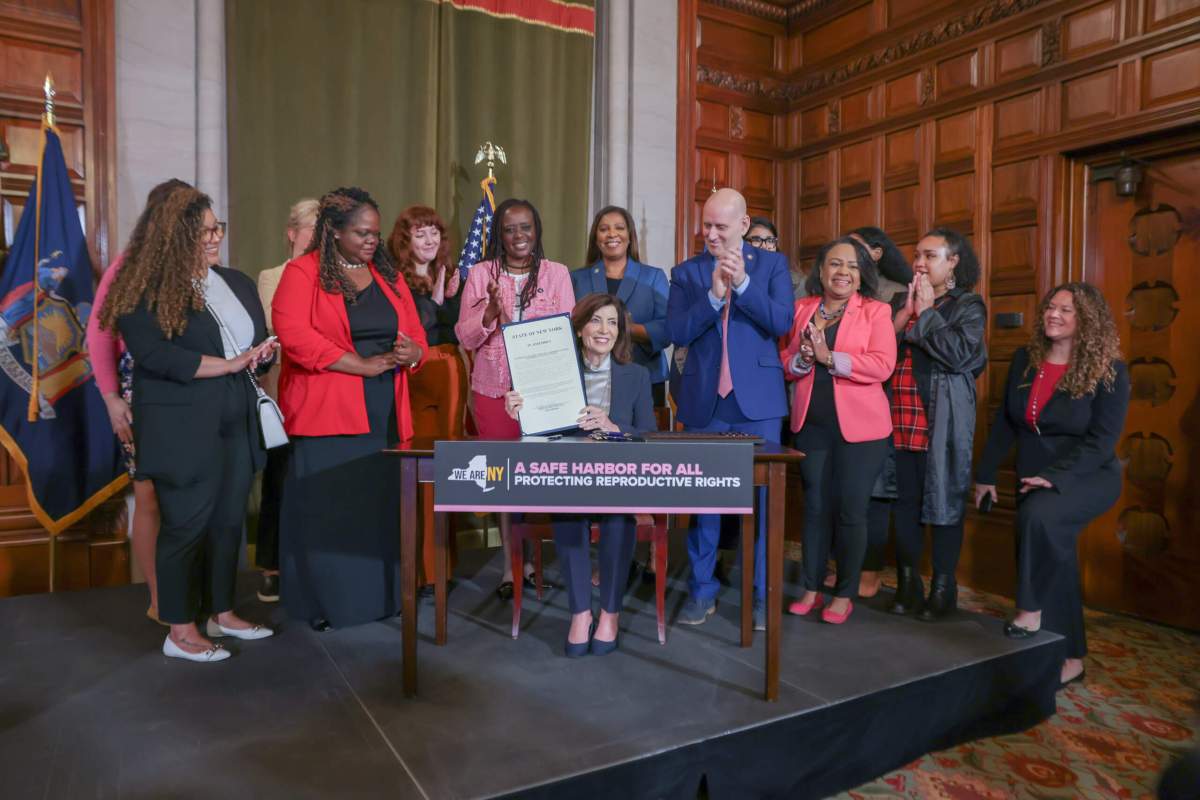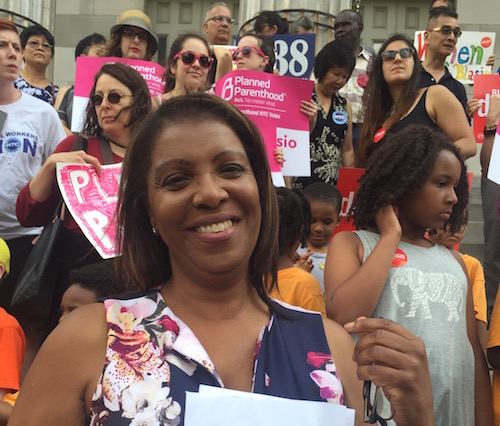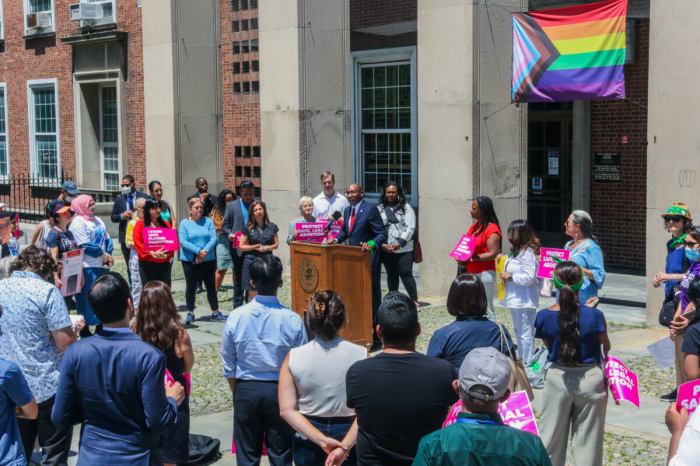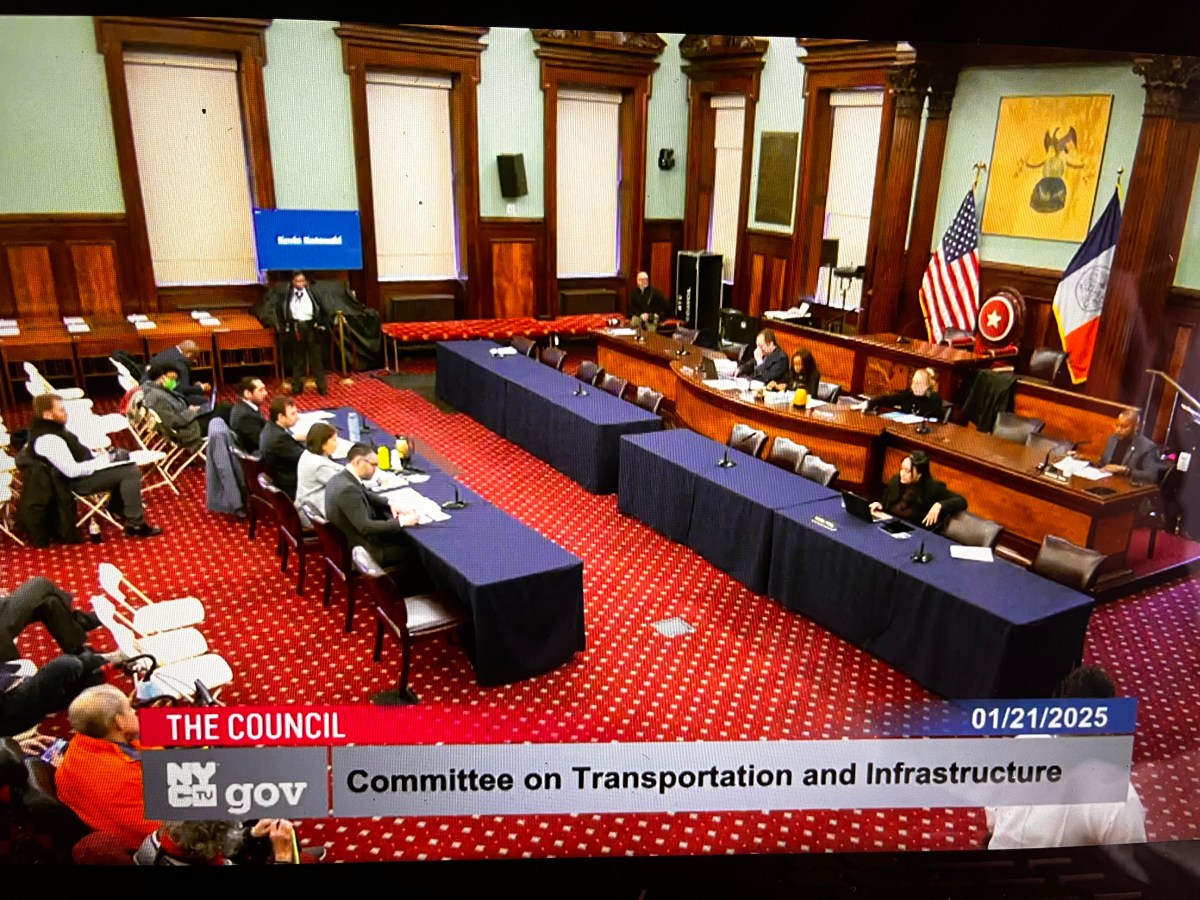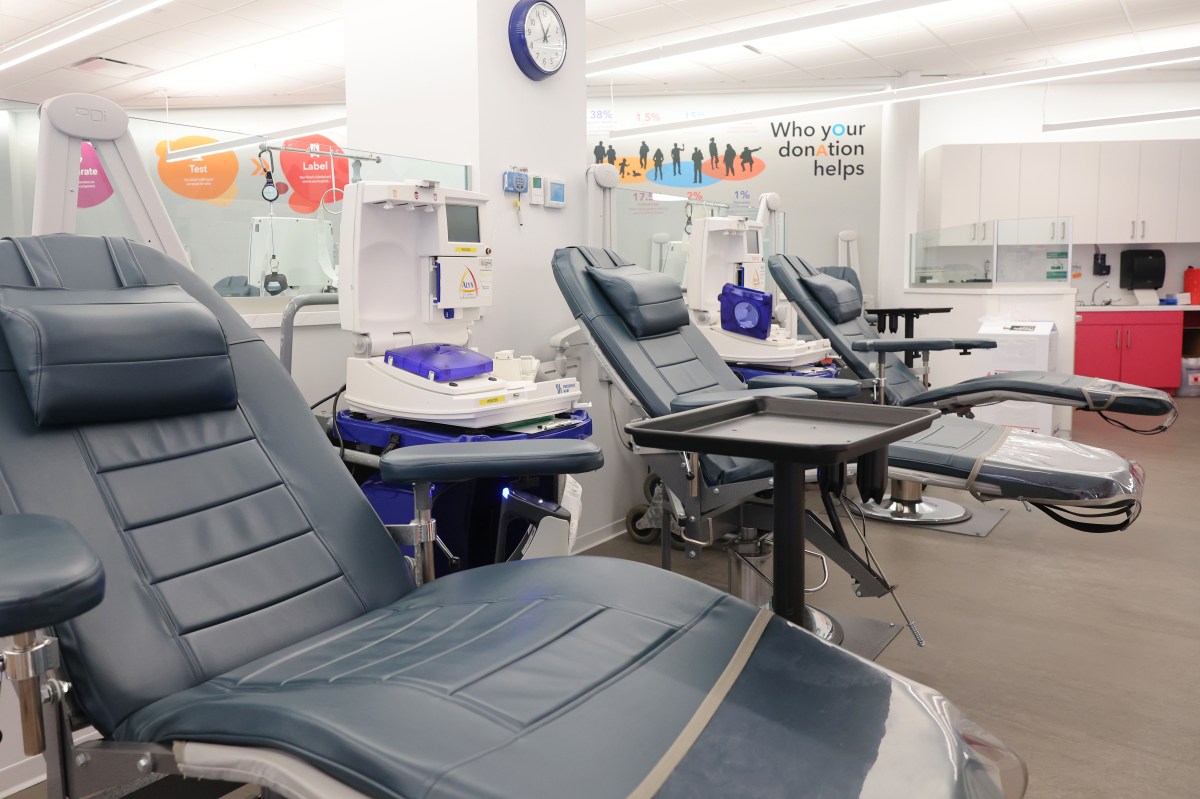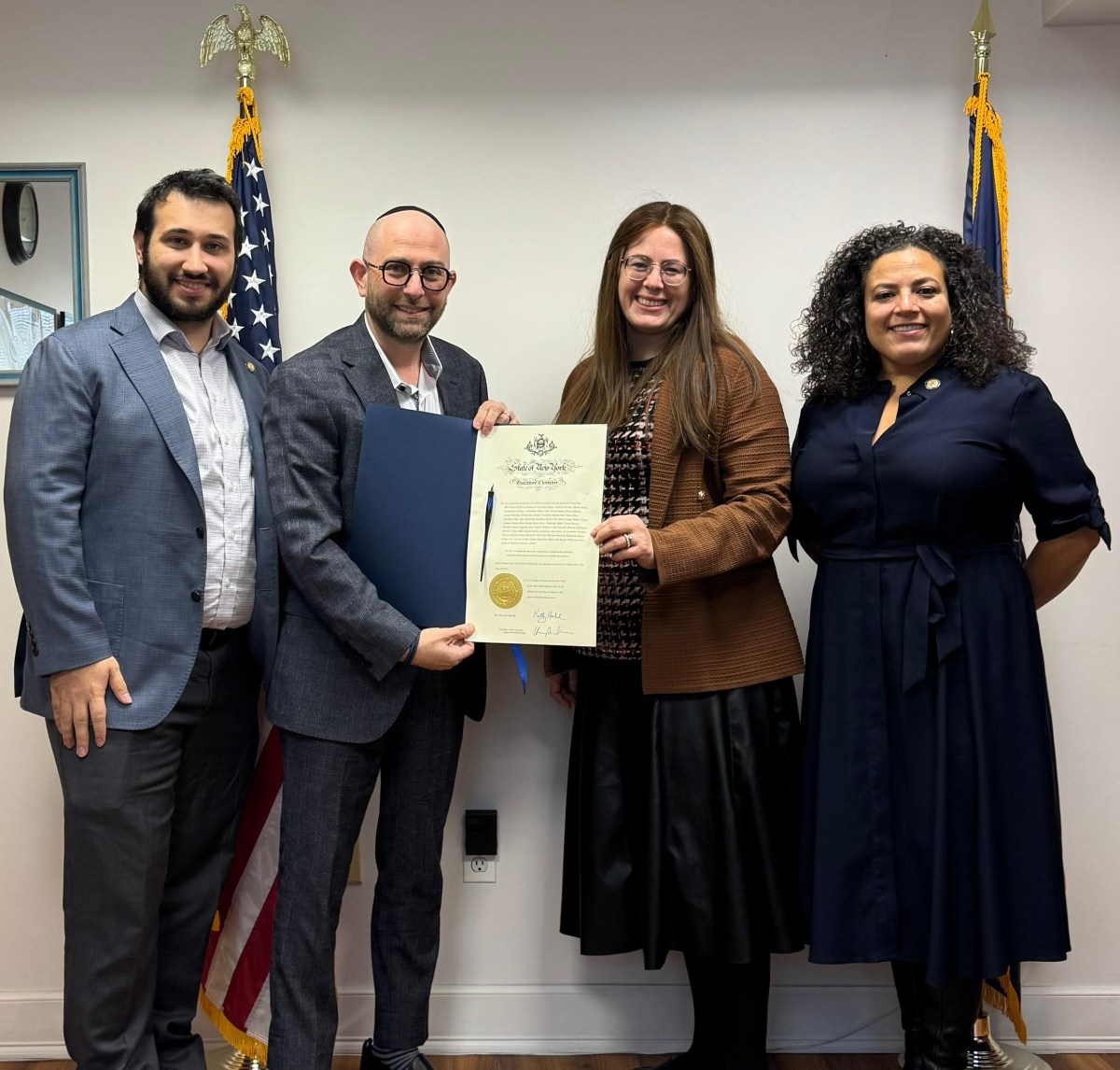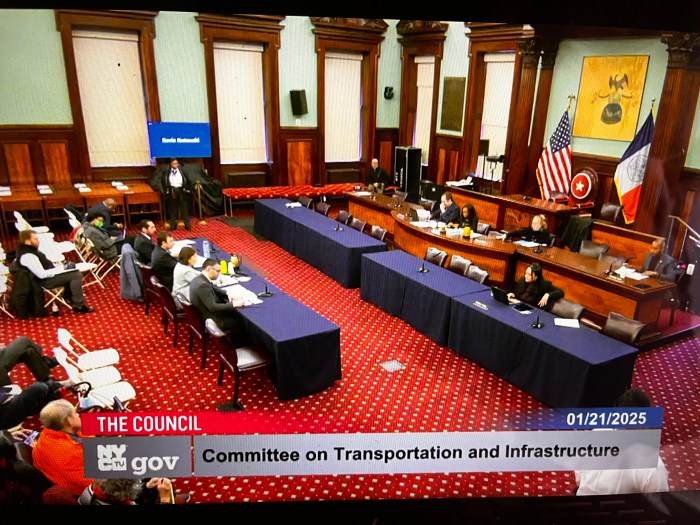New York state continues its protection of reproductive rights and access to medication abortion in recent moves made by Governor Kathy Hochul and Attorney General Letitia James.
Hochul signed two pieces of legislation on Tuesday, May 2, that would expand access to reproductive health care across the state by making birth control available over-the-counter at local pharmacies. The new law also ensured that every student enrolled in a City University of New York or State University of New York college has on-campus access to medication abortion.
“As anti-choice extremists and judges continue to roll back abortion rights across the country, we are fighting back here in New York,” Hochul said in a statement. “I am proud to sign these landmark pieces of legislation that protect and expand access to abortion and reproductive health care. Under my watch, I will continue to ensure that New York remains a safe harbor for those in need of care.”
On the same day, two multi-state coalitions led by Attorney General James filed two amicus briefs in the U.S. Court of Appeals for the Fifth Circuit to further protect access to medication abortion and privacy for family planning decisions around adolescent reproductive health.
In a statement, James stated that the coalitions refused to sit idly by “as basic rights are being assaulted and stripped away from millions of Americans.”
“The rulings being made by a single judge in Texas will have devastating effects nationwide unless we stand up and fight back,” James said. “I am proud that my fellow attorneys general have joined me in urging the U.S. Court of Appeals for the Fifth Circuit to reject these harmful decisions and instead protect the rights Americans have enjoyed for decades.”
In the amicus brief filed in Alliance for Hippocratic Medicine v. FDA, the coalition argues that the FDA’s determination that the medication abortion drug mifepristone is safe and effective and supported by medical consensus with more than two decades of widespread usage. The coalition also argues that the FDA’s subsequent regulatory actions, including authorizing the generic version of mifepristone, permitting qualified clinicians other than physicians to authorize its usage, and enabling its distribution by mail, are all backed by solid evidence.
As part of a second amicus brief filed in Deanda v. Becerra, the coalition argues that “eliminating Title X’s confidentiality protections for adolescents in Texas would have severe and devastating consequences for teenage patients.” The coalition also urges the U.S. Court of Appeals for the Fifth Circuit to reverse the lower court ruling and preserve the ability of minors in Texas to secure Title X services like contraceptives and family planning services sans parental consent.

In the latest Supreme Court decision for the Danco Laboratories v. Alliance for Hippocratic Medicine case on April 21, a 7-2 majority blocked the United States District Court for the Northern District of Texas’ order to prevent the distribution of mifepristone in the United States. The ruling means that the current FDA rules remain in effect, and mifepristone remains available in states were abortion is legal.
‘By the fall, if not sooner’
Some private universities in New York City have also joined public schools in ensuring on-campus access to medication abortion.
Amy Malsin, spokesperson for The New School, located on 66 West 12th St. in Lower Manhattan, told amNewYork Metro in a statement that: “We plan to offer medication abortion access on campus for students by the fall, if not sooner.”
In a statement shared with amNewYork Metro, Columbia University stated its commitment to double down in supporting its students’ access to reproductive health, resources, and care.
“In addition, in light of the Supreme Court’s decision to eliminate the constitutional right to legal abortion, the University is deeply engaged in broader issues that go beyond providing access to care for only our students. Columbia University, through expert-driven advocacy, endorses access to comprehensive reproductive health for all women, no matter where they reside in the U.S.”
“Columbia provides a robust set of sexual and reproductive health services to all students, with care coordinated and delivered through a network that includes Columbia Health, plus direct access to the physicians at the Columbia University Irving Medical Center. Students on the Columbia University Student Health insurance plan do not have any out-of-pocket costs for abortion services, whether surgical or medical.”
The student-led Reproductive Justice Collective (RJC) celebrated Hochul’s signing of reproductive justice health care legislation on Tuesday. Co-founder Niharika Rao, who was at the ceremony, told amNewYork Metro that all the “hours and hours every single week” lobbying and fighting for abortion access and care are starting to pay off.
“It was very emotional; there were some tears,” Rao said. “This marked the culmination of three years of organizing.”
Alyssa Curcio, a Columbia University law student and a RJC campus representative, told amNewYork Metro that guaranteeing on-campus access to abortion care is the “highest form of agency” for students.
“Abortion is objectively a part of healthcare, the same way that every other type of healthcare is,” Curcio said. “For me, it’s very personal to ensure that people have agency and the ability to have access, on their own terms, and without harassment here in New York.”
The fight is far from over, though, and the collective plans on holding both public and private universities in New York to task on offering on-campus abortion medication and reproductive health services.
“Now we’re gonna be working through implementation and making sure that universities actually offer it on campus clinics,” Rao said. “We need to make sure that they actually do that and not just default to telehealth.”



